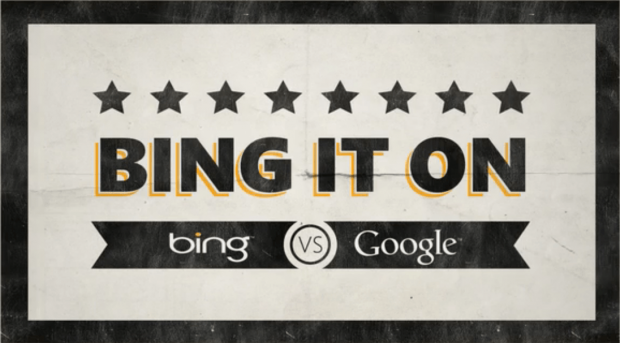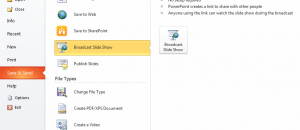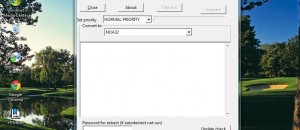During their “ongoing tests to measure our relevancy, assess customer feedback and satisfaction, and examine our product in many different ways”, Microsoft discovered that “Bing was beating Google in our search relevancy tests” (surprise, surprise). Microsoft says they followed the trends for a few months then hired an independent third party, Answers Research (a marketing firm based out of San Diego, California), to conduct nationwide blind tests pitting Bing against Google to see which consumers really preferred.
For these blind tests, Answer Research selected a “representative sample” of nearly 1,000 people across the United States of ages 18 and up. These 1,000 people were chosen randomly and one of the requirements to participate was to have used a major search engine (any major search engine) at least once in the past month. The participants were not told that Microsoft commissioned the study.
Participants where shown Bing and Google side-by-side (with all branding removed from the search engines so as to not influence results) and asked to run ten separate search queries. After each query the participants where asked to rate which gave better results, “Left side search engine”, “Right side search engine”, or “Draw”. The scores were tallied at the end and participants told which search engine they picked during the blind test.
Curious as to the overall results provided by the study? 57.4% picked Bing results, 30.2% picked Google results, and 12.4 % said both were equal. Or, as Microsoft likes to put it, “people chose Bing search results over Google nearly 2:1”.
Of course the above study is a clever marketing ploy, especially since the study was done only in the United States — outside the USA is where Google really eats Microsoft’s lunch. I’m sure Google could commission a study that would show opposite results. (Funny how “independent studies” commissioned by self-interested parties work out, eh?) Because of skeptics, Microsoft doesn’t want you to just believe the results of the study; they want you to try the blind test yourself.
Microsoft has put together a Bing It On website which lets you run search queries on Bing and Google at the same time. Like the above-mentioned study, Bing It On removes all Bing/Google branding and whatnot to minimize bias people may have towards Google or Bing. Of course it isn’t possible to completely make Bing and Google look the same (I could tell which results were from Google and which were from Bing), but for the most part Microsoft has done a fair job.
Once you run a search query on Bing It On, you are asked to rate which provided better search results — “Results on left”, “Draw”, “Results on right”. At the end of the your five queries, Microsoft tallies your picks and shows you which search engine you blindly picked. While it isn’t exactly following the scientific method, it may indeed help you find out Bing isn’t as bad as you thought. Or maybe not. I ended up picking Google 5 out of 5 times… but that could be because I knew exactly which one was Google and which one was Bing.
To get started with Bing It On, hit up the link below. Be sure to share with us in the comments below which search engine you ended up picking!

 Email article
Email article




